Bowel Cancer
We are here for your care
Bowel Cancer Surgeon in Mumbai.
The bowel is part of the digestive system. It is made up of the small bowel (small intestine) and the large bowel (colon and rectum). The small bowel is longer and it gets its name from the fact it is much narrower than the large bowel.

Bowel Cancer
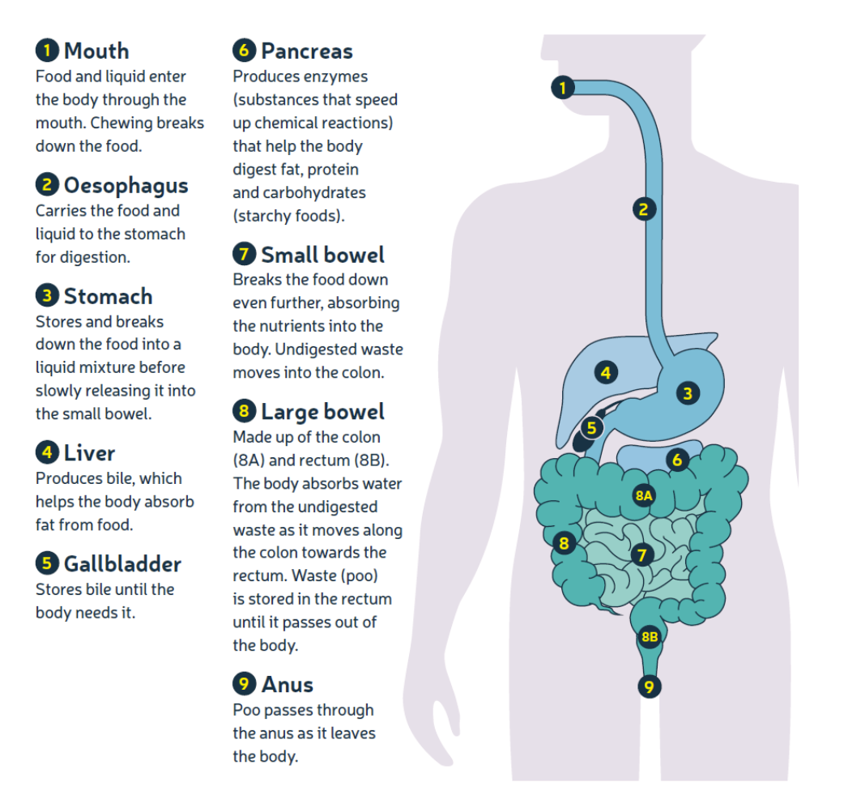
The bowel is part of the digestive system. It is made up of the small bowel (small intestine) and the large bowel (colon and rectum). The small bowel is longer and it gets its name from the fact it is much narrower than the large bowel. Bowel cancer is also called colorectal cancer. It affects the large bowel, which is made up of the colon and rectum.
The cells in your body normally divide and grow in a controlled way. When cancer develops, the cells change and can grow in an uncontrolled way.
Most bowel cancers develop from pre-cancerous growths, called polyps. But not all polyps develop into cancer.
Cancer cells may stay in the bowel or they may spread into the body, like in to the liver or lungs.
How common is Bowel Cancer?
Facts and figures about bowel cancer
These statistics can only give you a general idea of how bowel cancer is. They cannot tell you what will happen to you, as this depends on lots of things, like what treatment you have and at what stage you take treatment. The earlier you take steps when you get problems, the higher chances you achieve cure.
Colorectal cancer (CRC) is a formidable health problem worldwide.
It is the third most common cancer in men and the second most common in women.
The number of CRC-related deaths is estimated to be 8% of all cancer deaths and making CRC the fourth most common cause of death due to cancer.
In India, the annual incidence rates (AARs) for colon cancer and rectal cancer in men are 4.4 and 4.1 per 100000, respectively. The AAR for colon cancer in women is 3.9 per 100000.
Colon cancer ranks 8th and rectal cancer ranks 9th among men. For women, rectal cancer does not figure in the top 10 cancers, whereas colon cancer ranks 9th.
More than nine out of ten new cases (94%) are diagnosed in people over the age of 50, and nearly six out of ten cases (59%) are diagnosed in people aged 70 or over. But bowel cancer can affect anyone of any age.
1 in 15 men and 1 in 18 women will be diagnosed with bowel cancer during their lifetime.
How many people survive bowel cancer?
Bowel cancer is treatable and curable especially if diagnosed early. Nearly everyone survives bowel cancer if diagnosed at the earliest stage. However this drops significantly as the disease develops. Early diagnosis really does save lives
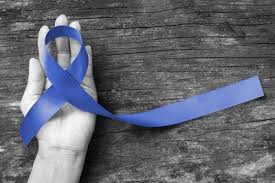
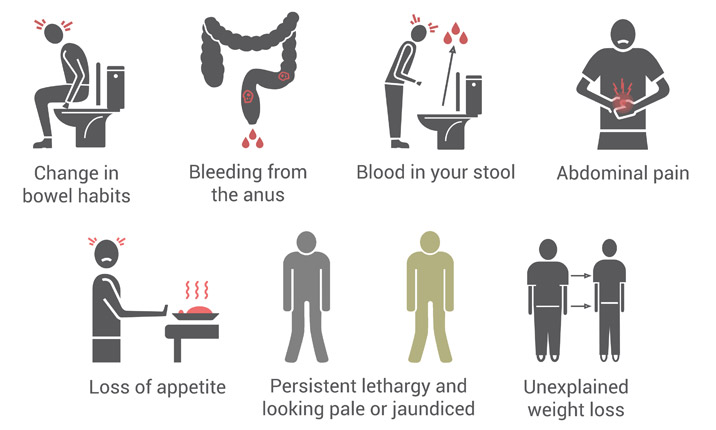
Symptoms
Most people with these symptoms don’t have bowel cancer. Other health problems can cause similar symptoms. But if you have one or more of these, or if things just don’t feel right, then please visit your doctor.
Sometimes, a tumour can block the bowel, causing sudden strong pains in the stomach area, bloating and feeling or being sick. This is called a bowel obstruction. You may also be unable to empty your bowels or pass wind. If you think you have a blocked bowel, see your doctor immediately.
Symptoms
How many people survive bowel cancer?
There are several possible causes of bleeding from your bottom or blood in your bowel movements (poo). Bright red blood may come from swollen blood vessels (haemorrhoids or piles) in your back passage. It may also be caused by bowel cancer. Dark red or black blood may come from your bowel or stomach.
Change in bowel habit
You may have looser poo and you may need to poo more often than normal. Or you may feel as though you’re not going to the toilet often enough or you might not feel as though you’re not fully emptying your bowels.
Pain or lump
You may have pain or a lump in your stomach area (abdomen) or back passage.

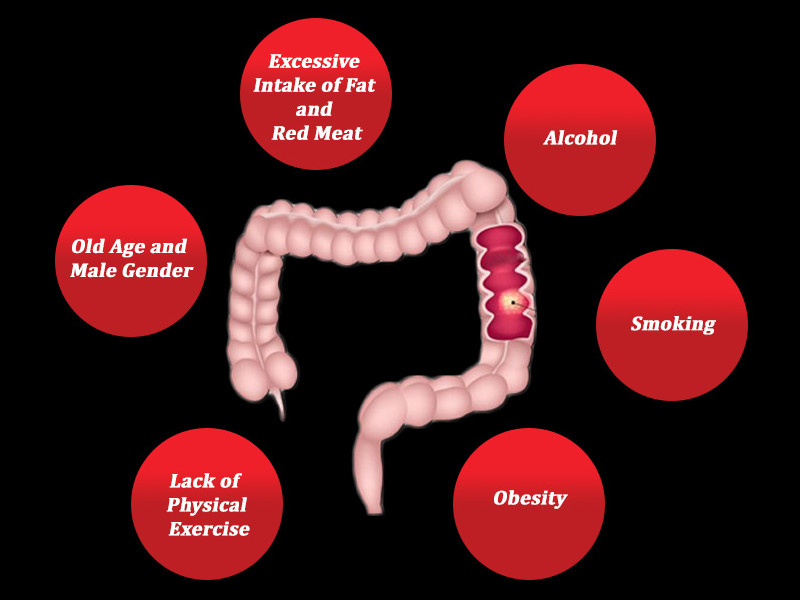
Who is at risk?
You are at risk if you have one or more of the following.
Having a low blood level of vitamin D may also increase your risk.
Following a healthy diet that includes plenty of fruits, vegetables, and whole grains, and that limits or avoids red and processed meats and sugary drinks probably lowers risk.
Can it be Prevented?
There’s no sure way to prevent colorectal cancer. But there are things one can do that might help lower your risk, such as changing the risk factors that you can control.
Colorectal cancer screening:
Screening is the process of looking for cancer or pre-cancer in people who have no symptoms of the disease. Regular colorectal cancer screening is one of the most powerful tools for preventing colorectal cancer.
Cancer begins from single cell to grow into polys and into cancer. With regular screening, most polyps can be found and removed before they have the chance to turn into cancer. Screening can also find colorectal cancer early, when it’s small and easier to treat.
If you are above 50 years or older, and/or you have a strong family history of cancers running in your family, you should consult a specialist regarding what would be the best screening test for you. The most important thing is to get tested.
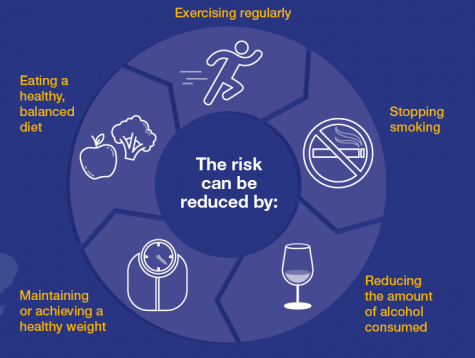
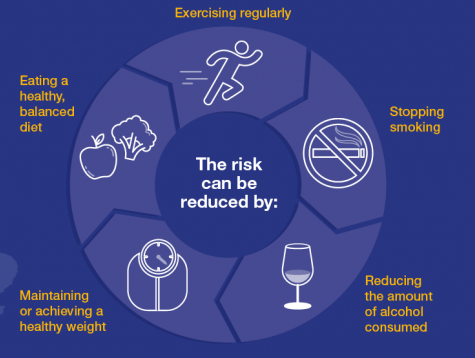
Can it be Prevented?
Weight:
Obesity increases the risk of colorectal cancer in both men and women, but the link seems to be stronger in men. Keeping a healthy weight may help lower your risk.
Physical activity:
Being more active lowers your risk of colorectal cancer and polyps. Start regular activity like walking, jogging, cycling etc, as it lowers the risk. Also avoid sitting and lying down for longer hours. Be active and reduce your risk.
Diet:
Diet high in vegetables, fruits, grains, and low in red , processed meats probably lowers the risk of colorectal cancer. Recently studies have shown that diet rich in fibre and whole grains probably reduces the risk of colorectal cancer.
Alcohol:
Several studies have found a higher risk of colorectal cancer with increased alcohol intake, especially among men. It is best not to drink alcohol.
Not smoking:
Long-term smoking is linked to an increased risk of colorectal cancer, as well as many other cancers and health problems. Quite smoking as early as possible.
Be vigilant and have a regular follow up if you have been diagnosed and / or treated for inflammatory bowel disease or have had a polyp removed in the past. Keep a regular follow up with your doctor.

Treatment
Bowel cancer is a serious illness. But many people are cured with correct treatment. Earlier you get diagnosed, earlier the stage of your cancer, the better. But, remember, every cancer in every patient behaves differently, you are not a statistic. No one can say exactly what will happen to you.
There are many ways colorectal cancer can be treated:
Two or more types of treatment may be used at the same time, or they may be given one after the other. The treatment plan that’s best for you will depend on:

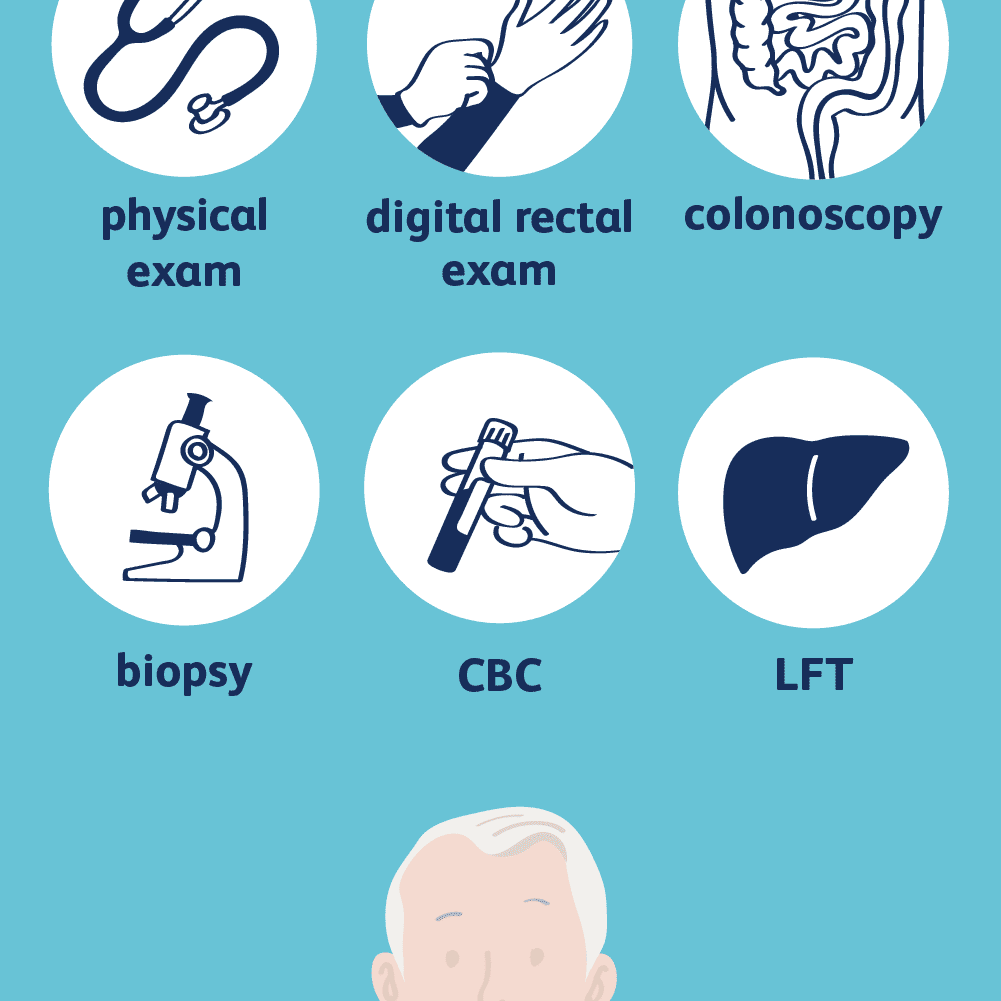
Surgery
In early stages, a proper surgery removing the involved bowel along with the lymph nodes is curative. The cancer bowel, a small part of normal colon on either side of the cancer, and the surrounding lymph nodes are often removed. The 2 ends of the colon are then put back together.
For most colon cancers, an opening on the belly to get rid of body waste (poop) is not needed, but sometimes one is used for a short time. This opening is called a stoma. If in case you will need a stoma for a short time, your doctor will tell you more about how to take care of it and when it can come out.
If the rectal cancer is very close to the anus, surgery will be done to take out the cancer and an end stoma will be made. You will need it for the rest of your life.
You’ll have regular check-ups after being treated for bowel cancer. There’s good research to show that being checked on regularly can help you live longer. If your cancer does come back, regular check-ups mean that it will get picked up and treated sooner. However, if you get any symptoms that worry you, see your doctor straight away. Don’t wait for your next check-up.
Follow up is must!
You’ll have regular check-ups after being treated for bowel cancer. There’s good research to show that being checked on regularly can help you live longer. If your cancer does come back, regular check-ups mean that it will get picked up and treated sooner. However, if you get any symptoms that worry you, see your doctor straight away. Don’t wait for your next check-up.
